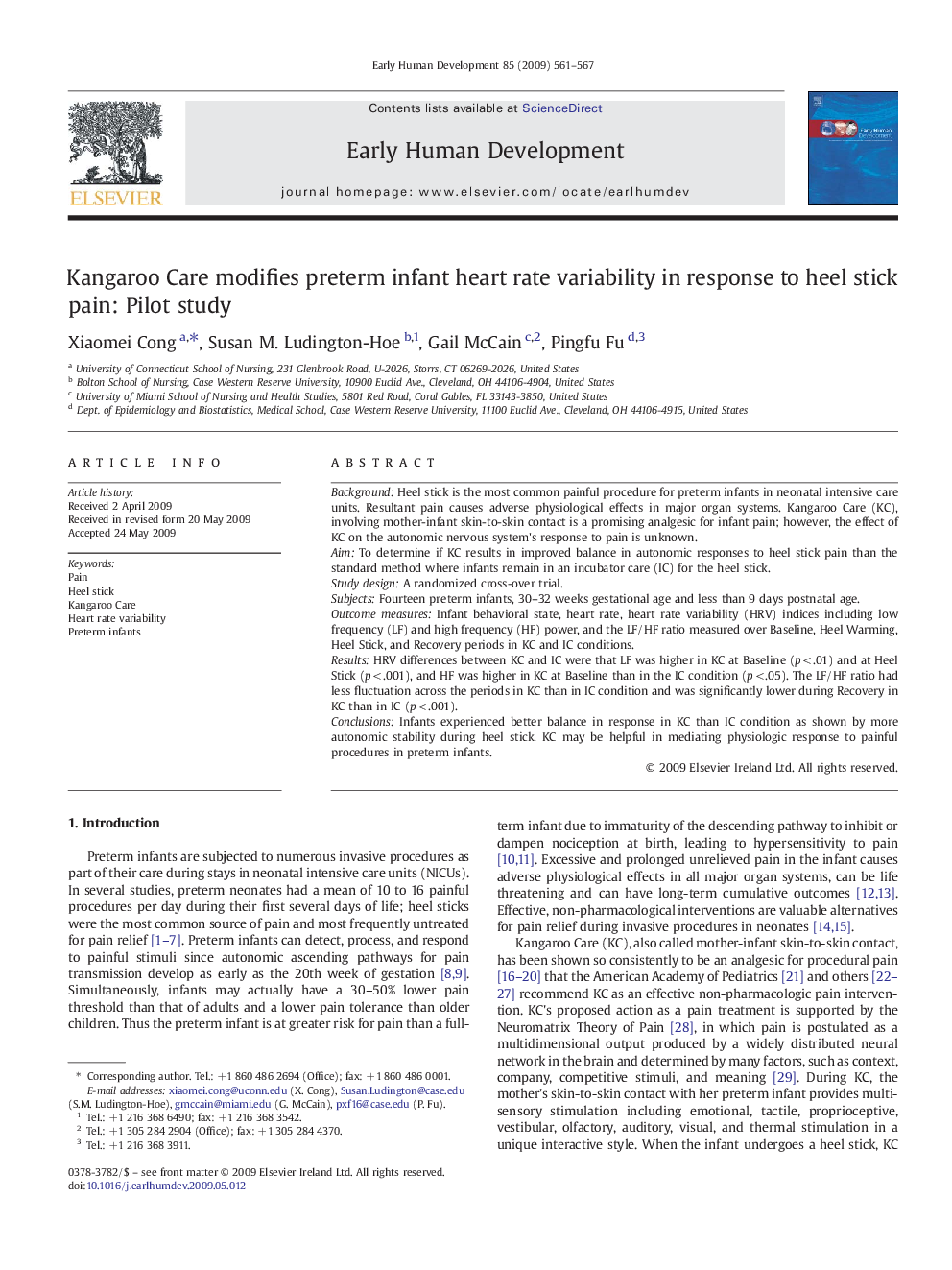| Article ID | Journal | Published Year | Pages | File Type |
|---|---|---|---|---|
| 3918538 | Early Human Development | 2009 | 7 Pages |
BackgroundHeel stick is the most common painful procedure for preterm infants in neonatal intensive care units. Resultant pain causes adverse physiological effects in major organ systems. Kangaroo Care (KC), involving mother-infant skin-to-skin contact is a promising analgesic for infant pain; however, the effect of KC on the autonomic nervous system's response to pain is unknown.AimTo determine if KC results in improved balance in autonomic responses to heel stick pain than the standard method where infants remain in an incubator care (IC) for the heel stick.Study designA randomized cross-over trial.SubjectsFourteen preterm infants, 30–32 weeks gestational age and less than 9 days postnatal age.Outcome measuresInfant behavioral state, heart rate, heart rate variability (HRV) indices including low frequency (LF) and high frequency (HF) power, and the LF/HF ratio measured over Baseline, Heel Warming, Heel Stick, and Recovery periods in KC and IC conditions.ResultsHRV differences between KC and IC were that LF was higher in KC at Baseline (p < .01) and at Heel Stick (p < .001), and HF was higher in KC at Baseline than in the IC condition (p < .05). The LF/HF ratio had less fluctuation across the periods in KC than in IC condition and was significantly lower during Recovery in KC than in IC (p < .001).ConclusionsInfants experienced better balance in response in KC than IC condition as shown by more autonomic stability during heel stick. KC may be helpful in mediating physiologic response to painful procedures in preterm infants.
